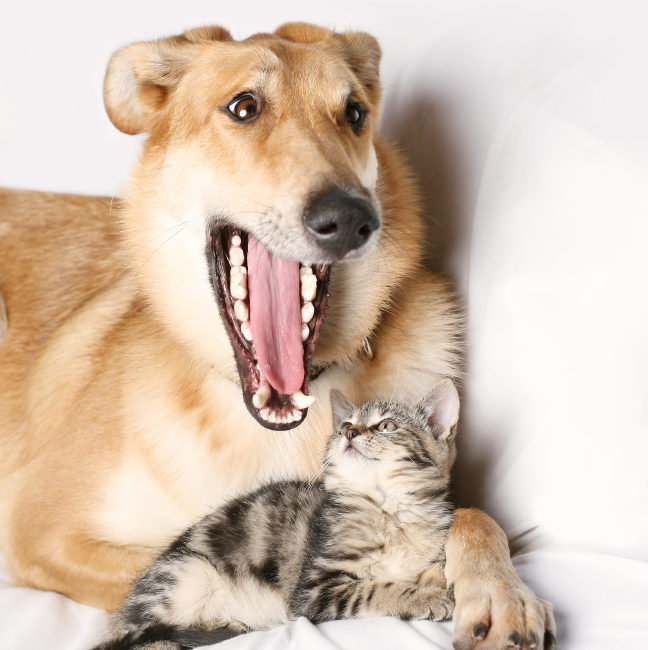Why do you think my cat/dog has dental pain when he/she still eats?
“Remember when you had your wisdom teeth out? It hurt, didn’t it? But you did not quit eating.”1 You ate slower, ate without chewing, or ate less. “We seem to expect animals to react dramatically to pain, and when they don’t, we often conclude that they must not be in pain at all. Think back to the last time you were in pain. Did you moan continuously? Probably not, but you were nonetheless in significant pain.”1
Why do dental cleanings have to be done under anesthetic?
Many pets won’t even allow vets to open their mouth when they are awake. In order to have a thorough exam of the mouth and do a thorough dental cleaning and polish, pets cannot be awake and moving around.
Will my older pet die if I put it under anesthetic for a dental procedure?
“As with humans, old age isn’t a disease and when using the proper anesthetic dosages and protocols, anesthesia is quite safe for an older pet — just as it’s safe for an older person.”2
Why does blood work have to done before a dental cleaning?
Blood work helps us detect issues that could increase your pet’s anesthetic risk. We want to prevent anesthetic incidents.
I barely have time to brush my own teeth – why would I brush my cat/dog’s teeth?
Our pets depend on us to take care of them. Taking just 1-2 minutes once a day to brush your pet’s teeth can significantly prevent dental disease which can cause pain and suffering. Brushing your pet’s teeth also decreases the frequency of dental cleanings.
I feed my dog/cat dry kibbles – isn’t that enough to keep his/her teeth clean?
No, regular dry kibbles aren’t hard enough to remove tartar which is calcified plaque. Also, some dogs barely chew their kibbles and swallow them whole.
My groomer brushes my dog’s teeth every time he/she gets groomed – isn’t that enough?
No, brushing your dog’s teeth every 3 months is not enough to remove plaque which builds up daily. Once the plaque calcifies into tartar, it cannot be brushed off.
Sources:
- “How can we tell if our pets are in pain?” http://sunnysidevetclinic.com/articles/pets-in-pain.htm
- “Anesthesia & Older Pets – Is My Pet Too Old?” http://www.vetdentists.com/anesthesia-older-pets-dental/
Written by Morinville Veterinary Clinic




